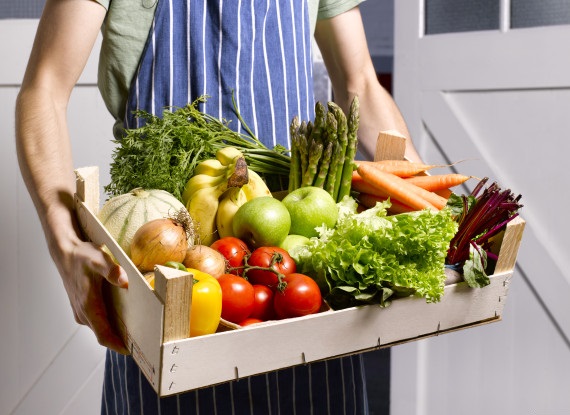Going to the supermarket isn’t what it used to be. Instead of picking up some bananas and milk, you have to sort through labels such as “GMO-free” or “locally Sourced”, among many others. These labels evoke questions you didn’t even know you had. Why do these bananas cost twice as much? What does organic even mean? Eating organically when you can is a good idea, and not nearly as complicated as stores want you to think.
Organic simply means that the food was grown without pesticides or chemicals. In order to boost profit, some farms or companies will resort to using unnatural means to protect and increase their yield. Have you seen those tomatoes at the grocery store that sell for less than a dollar a pound and are as big as softballs? Unfortunately, tomatoes don’t usually grow to that size naturally.
It’s pretty easy to spot the difference between natural and enhanced food. If you can’t tell by the size, you can usually tell by the price. But why is organic more expensive?
Forgoing the pesticides and fillers means that the end product is fewer and smaller, albeit natural. Since it’s a lot of work to produce food this way, the difference is made up by costing a little more. This doesn’t mean you have to break the bank, though. Buying whole ingredients such as produce and meat instead of pre-prepared meals is generally much cheaper.
Sure, you have to do a little more prep, but you also control exactly how you are preparing and eating your food. To really save money, try to avoid any foods that come in boxes, even if they have an organic label. In fact, those same labels can be misleading. Always check the ingredients to make sure what you’re getting is what is being advertised.
There are other organic options besides those found in grocery stores. You can find organic soaps and perfumes in specialty stores, but because of the shorter ingredient list, you can make a lot of these products yourself.
Did you know that citrus juice is great for getting stains out of clothes? How about using walnuts to buff scratches out of wooden furniture, bypassing harsh chemicals? By doing a little research, you’ll find that a great way to save money and live organically is to find multiple uses for one item. Recycling and upcycling are great ways to use things in other ways.
Like everything else, there are some organic products that are expensive and luxurious in name only. Sure, you can spend 6 bucks on a box of organic cereal, but you can also find the non-name brand option that is much cheaper. Up until a few years ago, conventional grocery stores only carried a handful of organic options, and those where priced high because of the lack of competition.
Fortunately, these days most grocery stores now offer an array of organic products that give the consumer options and help make the decision to buy organic much easier.
Just because living or eating organically can be expensive doesn’t mean it should. Remember, you have more options than you think. After doing a bit of research and learning what to look for, you can be have more green in your shopping cart and your wallet.
Todd Nelson, D.Sc. trained at the International Center for Natural Health and Medicine, graduating with both a Naturopathic Doctor degree and a Doctor of Holistic Health Sciences degree. Aside from heading the Tree of Life Wellness Center in Denver, Colorado as a naturopathic doctor, Todd is also a co-author of 3 books.
